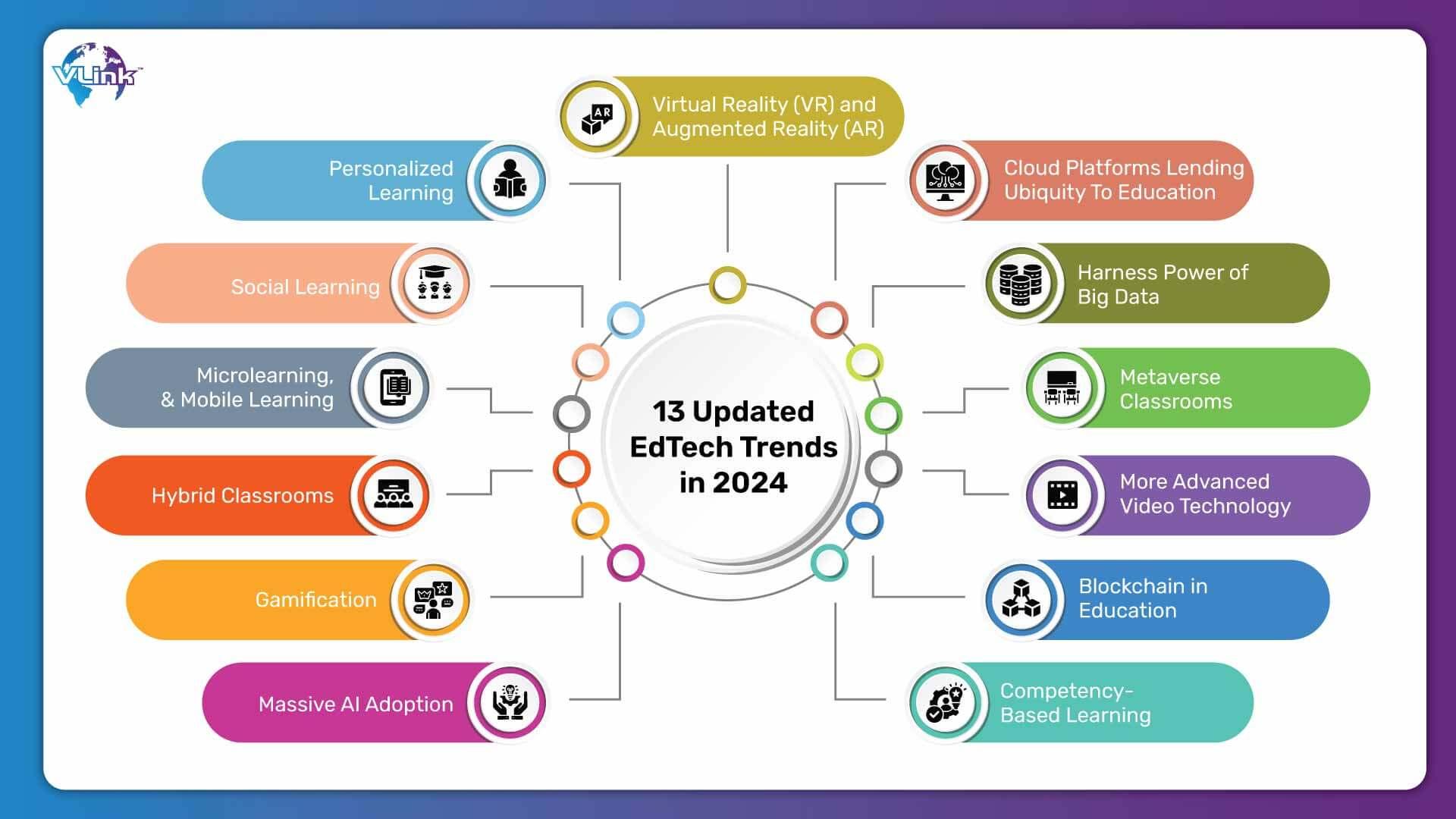Predicting the Next Big Thing in EdTech: Emerging trends to Watch in 2024
The landscape of Educational Technology (EdTech) is rapidly evolving, transforming the way we teach, learn, and interact.With global investments in EdTech surging past $100 billion in recent years, educators, students, entrepreneurs, and institutions are eagerly anticipating the next big thing in EdTech. In this in-depth article, we’ll explore the most promising EdTech trends for 2024, offering actionable insights, expert analysis, and real-world case studies. Whether your an educator seeking teaching innovations or a tech-savvy parent, staying ahead of the curve is crucial. Let’s dive into the top emerging trends in education technology that are set to reshape learning in the year ahead.
Why Watching EdTech Trends in 2024 Matters
- Future-Proof Your Skills: Adopting new tools and pedagogies now ensures your teaching and learning remain relevant.
- Boost Student Engagement: Innovative solutions often translate into higher retention and interactivity.
- Bridge Learning gaps: New platforms are making education more inclusive, accessible, and personalized than ever before.
- Drive Institutional Growth: Universities and schools embracing EdTech often see higher enrollment and satisfaction rates.
Top Emerging EdTech Trends to Watch in 2024
1. AI-Powered Adaptive Learning
Artificial Intelligence (AI) is revolutionizing educational platforms by delivering personalized learning experiences. In 2024, expect to see adaptive learning systems that utilize machine learning algorithms to assess student performance in real-time, adjusting content difficulty and style to match individual strengths and weaknesses.
- Benefits: Increased retention,better learning outcomes,enhanced inclusivity.
- Examples: Smart textbooks, AI-based tutoring chatbots, personalized assessments.
2. Immersive Technologies: AR, VR, and XR
Augmented Reality (AR), Virtual Reality (VR), and Extended Reality (XR) are bringing experiential learning to the mainstream classroom. These technologies turn abstract concepts into visual, interactive modules, from virtual laboratories to past simulations.
- Benefits: Deep engagement, practical skill acquisition, safe simulations for risky experiments.
- Case Study: Universities like Stanford and MIT using VR for medical and engineering practicals.
3. Microlearning and bite-Sized Content
With attention spans shrinking, microlearning is gaining traction. Platforms now deliver knowledge in short, focused modules—frequently enough under 10 minutes. This format caters to mobile learners and busy professionals seeking rapid upskilling.
- Benefits: Versatility, higher completion rates, easy revision and retention.
- Practical Tip: Choose EdTech tools that break down courses into micro units for on-the-go learning.
4. Gamification in Learning
By integrating game mechanics—such as points, leaderboards, and challenges—into educational content, EdTech platforms are making education more enjoyable and competitive. In 2024, expect to see more sophisticated gamification beyond the basic quiz format.
- Benefits: Improved motivation, healthy competition, real-time feedback, teamwork skills.
- Stats: Studies show gamified courses exhibit up to 50% higher learning engagement.
5. Blockchain for Credentialing and Digital Degrees
The blockchain revolution is finally reaching the classroom. Secure digital credentials and micro-credentials backed by blockchain technology offer a tamper-proof, instantly verifiable method for students to demonstrate their skills and academic achievements.
- Benefits: Enhanced trust, easily portable credentials, reduction in fraud.
- Case Study: European universities rolling out blockchain-backed diplomas for easier global recognition.
6. Social and Collaborative Learning Platforms
Social interactivity is at the heart of learning. Modern edtech startups are building collaborative platforms where students, educators, and even industry experts can work together on projects, discuss ideas, and solve problems in real-time.
- Benefits: fosters teamwork, communication skills, and global learning communities.
- Trend: Integration with tools like Slack, Discord, and Microsoft Teams for seamless remote learning.
7. Data-Driven Decision Making in Education
The rise of learning analytics equips schools and universities with actionable insights. Advanced dashboards help educators monitor student progress, identify at-risk scholars, and tailor interventions with precision.
- Benefits: Proactive support, reduced dropout rates, measurable success.
- Practical Tip: Use predictive analytics tools to customize content and support for your students.
Real-World Case Studies: EdTech Trends in Action
In 2023, Singapore’s Ministry of Education launched an AI-driven national curriculum. By leveraging adaptive learning platforms,the country saw a 30% improvement in student exam performance and dramatically reduced the achievement gap among various socio-economic groups.
Google deployed microlearning modules for continuous upskilling. Employees accessed five-minute lessons integrated into their workflow, resulting in a 45% increase in training completion and rapid skill development.
Practical Tips for Adopting EdTech Trends in 2024
- Start Small: Pilot new tools or platforms with a single class or module.
- Focus on User Experiance: Select intuitive, mobile-pleasant solutions to ensure accessibility for all.
- Encourage Teacher Buy-In: Offer professional development and highlight clear benefits to get educators on board.
- integrate, Don’t Replace: blend traditional teaching with new technologies for the best results.
- Monitor Impact: Use analytics to track engagement and performance, making data-driven adjustments.
Expert insights: What Industry Leaders are Saying
“EdTech in 2024 is about more than just gadgets—it’s about empowering every learner, everywhere, to achieve their full potential through inclusive and smart technology.”
— Dr. Maya Roberts, EdTech futurist
Conclusion: Preparing for the Future of Education
the dynamism of EdTech trends in 2024 highlights a future where technology not only supplements but fundamentally transforms education. From AI-powered adaptive learning and immersive education to data-driven decision-making and global digital credentials, the next big thing in EdTech will be defined by personalization, inclusivity, and real-world impact.
Educators, institutions, and learners who embrace these emerging trends today will be tomorrow’s pioneers. Whether you’re integrating microlearning or investing in advanced analytics, the key to success in 2024 is a willingness to innovate, adapt, and always put learners at the center.

